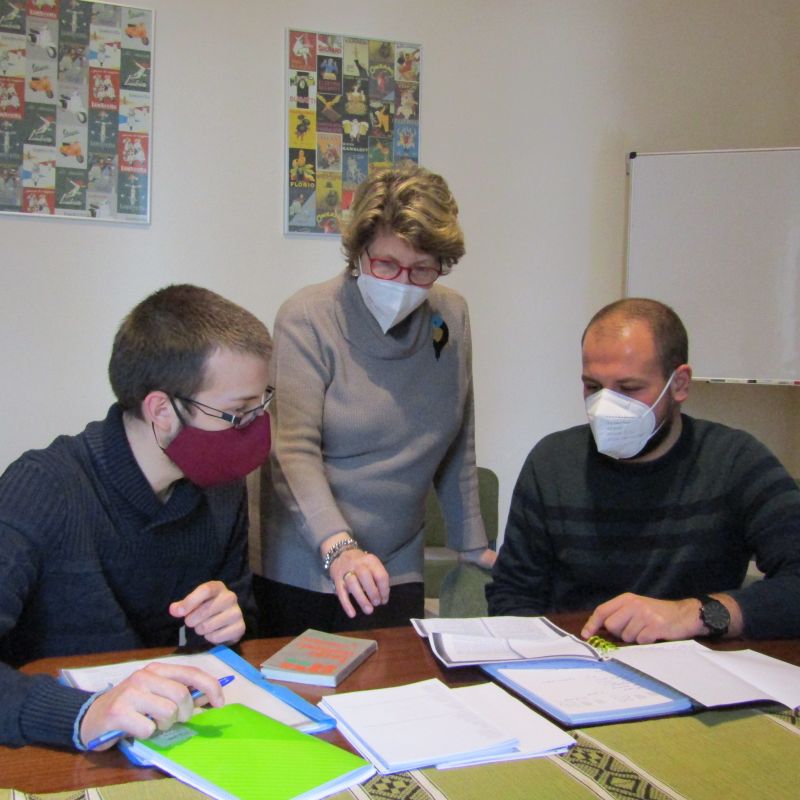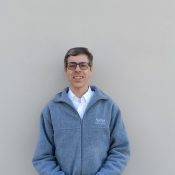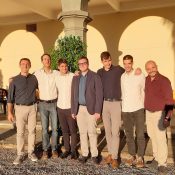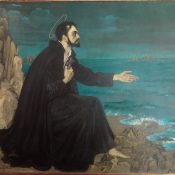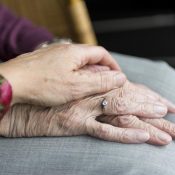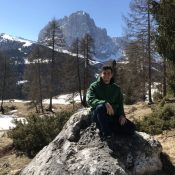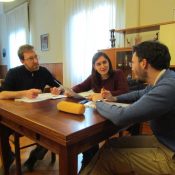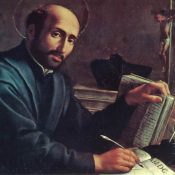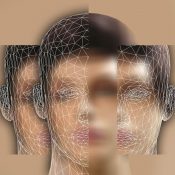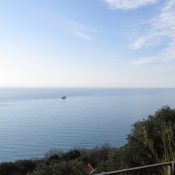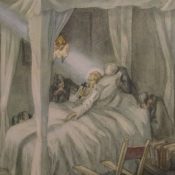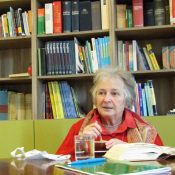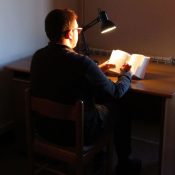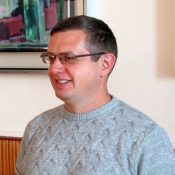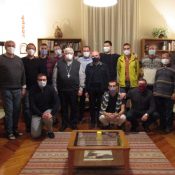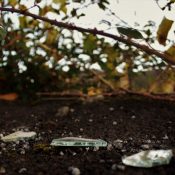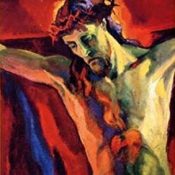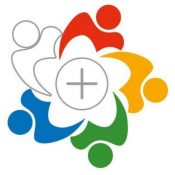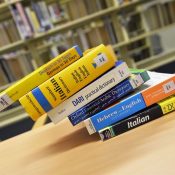The foreign novices use part of their time in the novitiate to improve their Italian. Once a week they have Italian lessons with Maria Stella Rollandi. She was a professor of history of economics at the University of Genoa.
How did you meet the Jesuits?
I met Father Lorenzo Giordano, a friend of my parents, who baptised my two children. Since then I have followed the history of the Society more closely and this led me to enrol my children, Giovanni and Elena, at Istituto Arecco (the Jesuit school of Genoa). I have had the opportunity to get to know many different Jesuits. From Father Giovanni Bosco Dalle Lucche, Latinist and attentive to the problems of young people, to Father Vincenzo De Mari, who gave seminars on biblical exegesis, to listening to Father Kolvenbach (editor’s note: general of the order 1983-2008) when he came to Genoa. From each meeting I drew richness and support for my own life path.
Is there an aspect of the Society of Jesus that you particularly appreciate?
I greatly appreciate the international approach and the respect for other cultures, for different languages. It is a characteristic that has always struck me and encouraged me to study it. Certainly the history of the Society is very composite, and over the centuries it has also taken on policies of great intolerance that have perhaps favoured the spread of a feeling of mistrust towards it. A Jesuit father one day, with a bit of irony, commented on some points of the entry “Jesuit” and “Jesuitism” in the Zingarelli dictionary. However, I do believe that the international outlook, the world view of Saints Ignatius and Francis Xavier have also allowed the Society to renew itself internally and to effectively maintain an openness to the other.
What do you wish the novices for their future in the Society?
I am struck by the heterogeneity of their personal paths and, at the same time, by the seriousness and dedication with which they face their call. I have a deep respect for these people.
I wish them to keep their vocation pure and their search constant.
Can you share with us a desolation you have received recently?
My two children live far away and, also because of covid19, I have to overcome great loneliness and the impossibility of giving them support. After so many years of teaching in a stimulating and lively department such as Economics, the lack of activity and less contact with young people make the last segment of my life more difficult.
Can you share with us one consolation you have received in this last period?
Being in good health and being able to continue on a path of research.
2021-02-16
